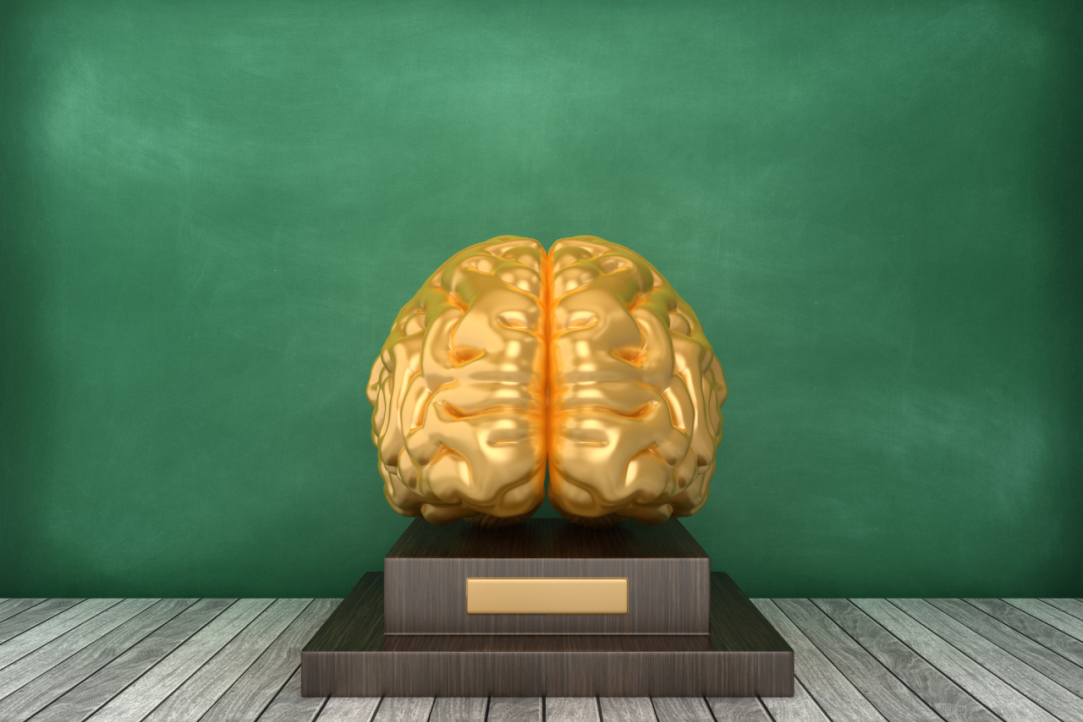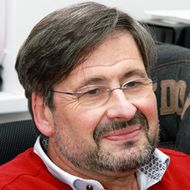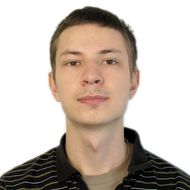HSE and Steklov Mathematical Institute Mathematician Alexander Efimov Awarded EMS Prize

Alexander Efimov, a research fellow at the International Laboratory for Mirror Symmetry and Automorphic Forms of HSE University, has been awarded the European Mathematical Society’s prestigious Prize.
The Prize is awarded once every four years to ten outstanding European mathematicians under the age of 35 and presented to the recipients at the European Mathematical Congress two years before the International Congress of Mathematicians (ICM).
It is the ICM that awards Fields Medals, which are the equivalent to the Nobel Prize in the field of mathematics. The EMS Prize is considered the forerunner of the Fields medal. Twelve Fields laureates (including Grigori Perelman, Stanislav Smirnov, Andrei Okounkov, Maxim Kontsevich) were recipients of the EMS Prize in the early years of their careers.
Alexander Efimov is one of Russia’s most talented young algebraic geometers. He defended his thesis in 2011 at the Steklov Mathematical Institute of the Russian Academy of Sciences. His thesis advisor was RAS mathematician Dmitry Orlov.
Over the past ten years, Alexander Efimov has conducted breakthrough research in algebraic and categorical geometry, and the theory of homological mirror symmetry in particular. Mirror symmetry was discovered by physicists in the 1990s in the form of duality between superconformal field theories when constructing the theory of elementary particle models. The famous Russian-French mathematician, Fields Prize laureate Maxim Kontsevich, rethought this concept of theoretical physics as an incredibly deep mathematical duality, now known as homological mirror symmetry.
In 2009, Alexander Efimov proved the hypothesis of homological mirror symmetry for Riemann surfaces. Then, in 2011, together with Mohammed Abouzaid, Denis Auroux, Ludmil Katzarkov, and Dmitry Orlov, he proved a variant of this hypothesis for open Riemann surfaces.
In 2017, Alexander Efimov was awarded the Gold Medal of the Russian Academy of Sciences with a prize for young scientists of Russia for his series of works, ‘Derived Categories and Cyclic Homology’. Ludmil Katzarkov, Academic Supervisor of HSE’s International Laboratory for Mirror Symmetry and Automorphic Forms, called the scientist ‘a brilliant superstar in modern algebraic geometry’, comparing his achievements to those of Mohammed Abouzaid in symplectic geometry (for which Abouzaid received the New Horizons in Mathematics Prize).
Ludmil Katzarkov, Professor of mathematics at the University of Miami (USA) and Academic Supervisor of the International Laboratory for Mirror Symmetry and Automorphic Forms at HSE University

Alexander found a counterexample to King's hypothesis on toric Fano varieties in toric geometry. This is an amazing achievement. Many researchers, including Borisov and Hua, expected the opposite. Alexander also proved Kontsevich’s hypothesis on the homotopy finiteness of derived categories of coherent sheaves on finite type schemes. This result was actively used in the works of Toen, Vezzosi, Pantev and Vaquie. Alexander plays an important role in our laboratory. We are all ready to learn from him, to collaborate with him, and to promote the take-off of a new leader in modern Russian mathematics.
Alexander Efimov, Research Fellow, International Laboratory for Mirror Symmetry and Automorphic Forms, HSE University

I was pleasantly surprised when I learned that I received the award. The president of the European Mathematical Society informed me about it two months before the laureates were officially announced. The award ceremony will be held next year during the European Mathematical Congress, which is scheduled for June 20-26, 2021.
HSE University congratulates Alexander Efimov on receiving the prestigious EMS Prize and looks forward to future complex mathematical solutions from him!
Alexander Efimov
See also:
HSE University Wins Two Medals at the International Mathematics Competition for University Students
Two students, one graduate and one undergraduate, from the HSE Faculty of Computer Science (FCS) programme in ‘Applied Mathematics and Information Science’ won prestigious awards at the International Mathematics Competition for University Students (IMC). Graduate Maksim Kazadaev and first-year student Daria Linichenko both represented HSE University at the IMC, winning gold and silver medals respectively.
Prepare for the INTO HSE Olympiad with HSE Students
Winners of the INTO HSE International Maths Olympiad receive scholarships and admission offers to 37 different programmes at HSE University. Angelina Yudina, a master's student and invited instructor of maths at the Faculty of Economic Sciences, offers a video lesson where she analyses the demo version of the maths problems from the Olympiad.
Immortal Cells and Mathematics Reveal Mechanism behind Coronavirus Infection
A mathematical model has helped describe the course of infection caused by two variants of coronavirus: Omicron and Delta, and explain the differences between them. It appears that the cell entry rate is lower for Omicron, allowing infected cells ample time to alert neighbouring cells of the threat and trigger the activation of their innate immune response. In the future, the developed model could be employed to investigate any other variant of COVID-19, potentially leading to effective strategies for combating new hazardous strains, such as Pirola and JN.1. The findings from the study conducted with the participation of HSE researchers have been published in PeerJ.
Mathematicians Reveal the Mechanism behind Neuron Synchronisation: Hyperchaos
Scientists of the International Laboratory of Dynamic Systems and Applications at HSE Campus in Nizhny Novgorod have described a rare case of synchronisation in a system of chemically coupled neuron models. The study findings enable a mathematical description of atypical brain functioning modes, including those associated with neurodegenerative diseases. The study has been published in Regular and Chaotic Dynamics.
‘The Joy of Science Lies in the Euphoria of Learning’
For Elena Nozdrinova, mathematics is her life's work and a realm where she discovers universal order and harmony. In her interview with the HSE Young Scientists project, she speaks about dynamical systems, the Nizhny Novgorod scientific school, and favourite pastimes that help her grow.
HSE Scientists Unveil New Findings Regarding Stability of Communication Systems
Researchers from the International Laboratory of Dynamical Systems and Applications at the HSE Campus in Nizhny Novgorod have discovered that the use of systems with hyperbolic solenoid attractors and repellers can lead to issues in the transmission of communication signals. The findings of this study have been published in Results in Mathematics. The research was financed by a substantial grant from the Russian Government as part of the 'Science and Universities' National Project and a further grant from the Russian Science Foundation.
Monsters of the Deep: HSE Scientists Have Compiled a Catalogue of Rogue Waves
Rogue waves, or killer waves, are abnormally high and deadly waves that can emerge unpredictably in open seas and along shorelines. They pose an imminent deadly threat to everyone from colossal liners and pleasure yachts to seafarers and vacationers. Scientists from the HSE campus in Nizhny Novgorod Efim Pelinovsky and Ekaterina Didenkulova have assembled a catalogue of such phenomena that occurred in the World Ocean from 2011 to 2018, identifying the areas where they are frequently documented and inflict the most substantial damage.
Students of Engineering and Mathematics School Present First Project Results
Students of the Engineering and Mathematics School (EMS) launched by HSE University and VK in October 2022 held a Demo Day to showcase the first results of their product- and research-based IT projects. Work on the projects has been conducted under the supervision of experts from the university and mentors from VK.
‘I Prefer Work to Most Types of Pastime’
Ivan Arzhantsev has headed up the Faculty of Computer Science since it was established in 2014. He has never been a specialist in Computer Science – all his life he’s been engaged in mathematics. On his 50th birthday, he shared with HSE Life how this has helped him to lead the best HSE faculty.
HSE University Students Win Prizes at the International Mathematics Competition for University Students
The 29th International Mathematics Competition for University Students (IMC 2022) took place in early August in a mixed format in Blagoevgrad (Bulgaria) and online. Eight students of the HSE Faculty of Computer Science and the HSE Faculty of Mathematics won prizes at the competition.


